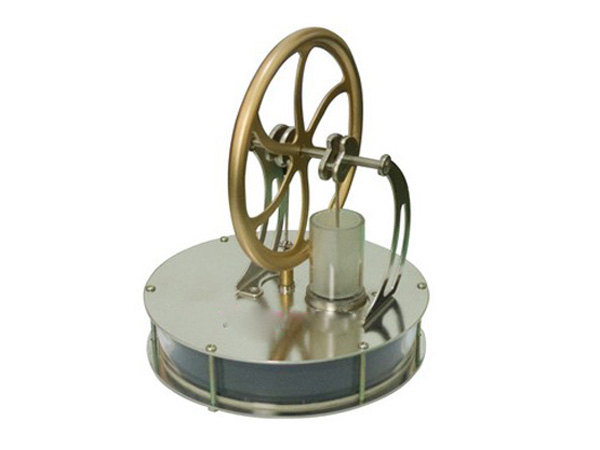Just found this, the NASA project cited above is the basis of a new engine after all,
stirling engineMuch like what kind of firearm you should own, or what should go into a proper bug out bag, most preppers could endlessly debate the qualities needed in a bug out vehicle. And like any debate among preppers, there is no definitive answer. The perfect vehicle for you will vary depending on your preferences, circumstances, abilities, and experiences. There isn’t a single type of vehicle that is perfect for anyone.
In the future however, there may be a new type of engine that just about every prepper will want in their vehicle. I say “in the future” because this setup was only recently invented by a man in San Antonio named Josh “Mac” MacDowell, albeit for very non-prepper reasons (though he’s not the first person to come up with this idea). Rather than an internal combustion engine, he wants to place a stirling engine in his vehicle.
I’ve written about the stirling engine and its potential uses for preppers before. It was invented in the early 1800’s as a safer alternative to the steam engine, but it never caught on. Thought it’s rugged, simple, easy to maintain, and has stellar fuel efficiency, the engine doesn’t work very well on a larger scale. Its motion is reliant on its ability to exchange heat between the engine and the air, so if the engine is too big, it will struggle to shed heat.
It also can’t shift into different speeds very quickly, which is why it never caught on in the car industry. Not that they wouldn’t be interested. The stirling engine has a fuel efficiency that’s about three times better than a gasoline combustion engine. Unfortunately the stirling takes a really long time to heat up or cool down, both of which determine how fast the engine is running. Those technical hurdles were too much for car companies to overcome.
However, those hurdles are no longer a problem with the technology that’s available to us today. Here’s what stirling engine is capable of, once it’s combined with a hybrid vehicle:
Though mechanically sound, the Stirling engine never caught on in the 1800s, with most businesses choosing to use steam engines for their industrial applications. NASA even experimented with the engine in the early 1980’s, and was able to achieve 54 miles per gallon, but the Space Agency never went any further with the technology. MacDowell borrowed one of these Stirling engines from NASA and began experimenting with it to see if he could use the regenerative engine with 21st-century automotive know-how.
MacDowell coupled the engine with existing hybrid technology, creating a system that will deliver 58 miles per gallon to a Ford F-150 and at least 100 miles per gallon in a smaller SUV. In his model, the Stirling engine runs at a fixed RPM generating electricity that is used to charge the batteries, which drive motors that propel the vehicle.
Using this thermopile technology, a Stirling-powered vehicle can drive at highway speeds without having to recharge. MacDowell also redesigned the Stirling engine to have the dimensions and appearance of a standard four-cylinder engine, making it compatible with existing automobiles. His idea was so brilliant that Texas A&M University became involved in the project, providing MacDowell with technical expertise and a testing environment to aid in the development of the engine.
By using the stirling engine as a generator to power the batteries, as opposed to directly powering the car, this bypasses pretty much all of the problems with the engine. Nothing but the benefits, such as the insanely good fuel efficiency, remain. MacDowell believes that if his experiments are successful, then his setup could replace the internal combustion for most applications in the near future.
So what else could this vehicle provide to preppers, other than giving a vehicle the ability to drive across the continental US on a single tank of gas (which MacDowell intends to demonstrate in a few months)?
For starters, it would be a stealthy car. You could turn the engine off and just run on the batteries if you found yourself in a hairy situation. Second, you would have a power generator everywhere you go, and a massive battery bank to charge whatever electronic devices that you brought with you. If you tried doing that with an ordinary non-hybrid vehicle, you would run the risk of burning out the lead acid battery.
The greatest advantage however, would be the versatility of the stirling engine itself. Since that engine runs on an external heat source, as opposed to an internal combustion engine, you could use pretty much any fuel source you can imagine. You could pour gasoline, diesel, bio-diesel, kerosene, or alcohol in the tank. With a few modifications, you could run natural gas or propane as well.
Though this certainly wasn’t MacDowel’s intention, he’s basically created the perfect prepper car. If there ever comes a time when our society collapses for a prolonged period, and fuel is both scarce and varied, a hybrid car with a stirling engine would be the last car on the road to “run out of gas”, so to speak.
http://readynutrition.com/resources/thi ... _19062016/
